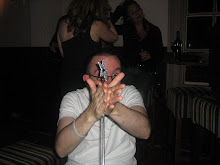 broken her spirit and she drinks regularly. Oscar married Birdie for her family's land and he and Ben now plan to build a cotton mill on that land. However they are short and come to Regina for the rest of the money, she says she will get it from Horace but she wants a larger share than her brothers if she does. Horace refuses to give his wife the money so the brothers concoct a plan to steal Horace's bonds from the bank enlisting Oscar's simpleton son who works there. When Horace finds out he doesn't tell the police instead letting the brothers take the bonds which enrages Regina who wants to use the theft to bribe her brothers. Just then the sickly Horace has a heart attack and Regina leaves him instead of getting his pills. He dies and she manages to bribe her brothers and get her larger share in the business but in the process loses her daughter Alexandra who is upset about her father's death and absconds with her suitor David.
broken her spirit and she drinks regularly. Oscar married Birdie for her family's land and he and Ben now plan to build a cotton mill on that land. However they are short and come to Regina for the rest of the money, she says she will get it from Horace but she wants a larger share than her brothers if she does. Horace refuses to give his wife the money so the brothers concoct a plan to steal Horace's bonds from the bank enlisting Oscar's simpleton son who works there. When Horace finds out he doesn't tell the police instead letting the brothers take the bonds which enrages Regina who wants to use the theft to bribe her brothers. Just then the sickly Horace has a heart attack and Regina leaves him instead of getting his pills. He dies and she manages to bribe her brothers and get her larger share in the business but in the process loses her daughter Alexandra who is upset about her father's death and absconds with her suitor David.I would say The Little Foxes is a film you could definitely define as a 'women's film'. The male characters are either greedy (Oscar and Ben), thick (Leo) or kind but sick (Horace). In fact the character of David had to be created to add another sympathetic male to the story but even David isn't perfect and can't hold his tongue over his hatred of the Hubbard family. The three female leads all recieved Oscar nods again Davis plays a monstrous woman who is battling for equal rights for women but going about it the entirely wrong way. Teresa Wright's Alexandra is the film's moral compass, as Alexandra she is grown out of a childlike admiration for her mother and realises that her family isn't as perfect as she once though. While Patricia Collinge as Birdie gives a multi-layered peformance of a very sweet women who is on the verge of a nervous breakdown thanks to her husband Oscar's constant berating of her. In her final scene she has a mini-breakdown and it is one of the film's best and most heartbreaking scenes. The sets are brilliant with Regina and Horace's house particularly lavish however this is where Davis and Wyler fell out as she didnt think that a family who had money problems would afford a place like this. Davis did eventually quit the picture but when Wyler threatened to sue her for the cost of the film she came back and finished but didn't do a splashdash job at all. The film got eight nominations but won none of them and this was another film that lost out to the inferior How Green Was My Valley. A very good melodrama its a shame that Wyler and Davis never worked together again because this film is expertly made and brilliantly played.



